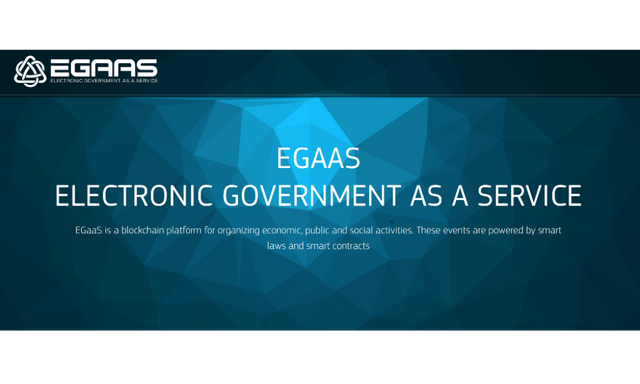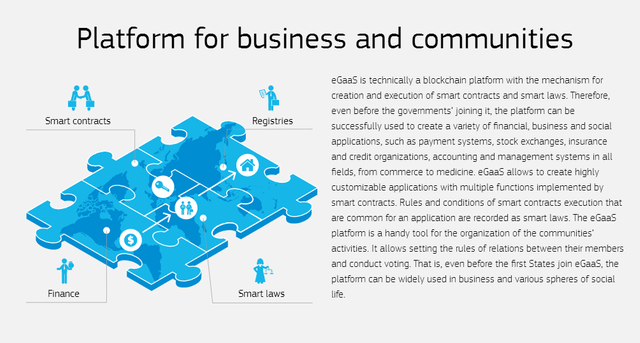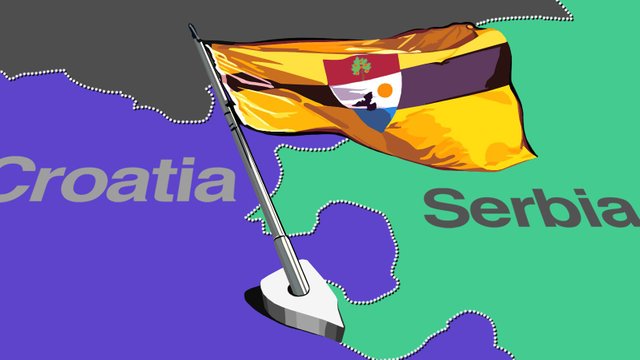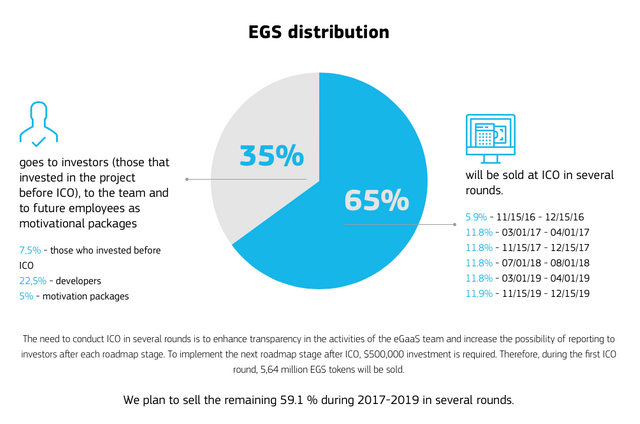
Join - http://egaas.org/ico/index.html
EGaaS is a blockchain platform for organizing economic, public and social activities. These events are powered by smart laws and smart contracts.
The eGaaS blockchain
the eGaaS blockchain platform is a peer-to-peer (P2P) network, where each node contains a complete database of the system. To synchronize database changes and to protect it against unauthorized changes the blockchain technology is used. Current database changes sent to the network by users — values entered, new objects, their attributes and relationships added — accumulate on the node that currently has the right to create a block. The node checks both the entries (transactions) and their compatibility with each other, signs a formed block with a private key and sends it to the network. Other nodes check the right of the signing node to create block, the validity and compatibility of the transactions in the block and the correctness of the signing. If the nodes do not find any error, they execute the transactions prescribed in the block, that is, modify the databases synchronously.
Technology
eGaaS performs four basic functions required for efficient transfer of most types of government and business activities into blockchain technology: financial system, registry structure, smart contract algorithm and smart law formation and execution mechanism. The financial system secures transactions in the currency of a particular country. Smart contracts automatically implement the algorithm of deals involving registry objects and with possible fiat-currency transactions. Smart laws regulate the creation and implementation of smart contracts and automatically regulate relations between individuals and organizations in all areas of government activity.
eGaaS network protection
The eGaaS database is protected against unauthorized modification by the following means:
Restricting the number of nodes that can create and sign blocks;
Checking the correctness of formation of all blocks by the network nodes;
Storing the complete database version on each network node;
Blocking the possibility of modifying the blockchain blocks without consent from all
nodes.
Protection against entering of invalidated information into the database is secured through:
Strict delineation and verification of the rights of different categories of users on data
entry;
Checking of transaction conditions stated in smart contracts (practically all
transactions are implemented when the relevant smart contracts or smart laws have
been executed);
Checking of smart contracts for compliance with the active smart laws of the State.
Join - http://egaas.org/ico/index.html
The eGaaS blockchain platform
Common space for smart contracts
From this analysis, it can be concluded that the obvious benefits of the blockchain technology can be fully realized only within a common enclosed information space, that is, within a common blockchain platform for all possible data types. This was the idea that formed the basis for the eGaaS project. The following principles lie at the heart of the eGaaS blockchain platform :
· Only those data that are generated within the platform can have full credibility;
· These data would be credible only if they are used within the platform;
· Maximum credibility of data inputted into the system from the outside can be obtained only if there is an extremely formalized and legally verified offline protocol, implemented at the level of governments.
In today’s world when all spheres — state, financial, economic, social — are extremely intertwined, interdependent and integrated into a common information flow, blockchain can be a reliable and effective platform only if data on maximum number of objects and agents involved in activities in these spheres are included. That is, the eGaaS database should incorporate all possible registries: of citizens, property, organizations, shareholders, industrial products, copyrights, licenses, etc. Besides, it is obvious that all financial activities delegated most likely to the central bank of the country has to be transferred to a common blockchain platform.
However, full functionality and maximum efficiency of such a common blockchain can be secured only by including in it the legislative regulations of the state. This will complete the creation of a closed information space required for efficient functioning of smart contracts. It is only when agreement objects (registry objects), conditions of agreements (legislative regulations, tariffs, standards), financial instruments, and, of course, transaction agents are joined in the common data space that smart contracts can be actually used for mass purposes.
Business
eGaaS is a complete tool for effective business operations. It contains a common structure of registries (companies, products, licenses, etc.), whose objects are used when drawing up smart contracts. The smart law system secures automatic deduction of taxes, customs duties and other charges.
Social protection
Keeping records of the income and medical data of citizens would allow the government, or more precisely, a special smart law, to optimally implement social support in the form of disability pensions, various allowances and benefits. The state pension system is also implemented on the basis of smart laws, which automatically allocates social tax, calculates pensions and starts paying them when the citizen reaches a retirement age.
Finance
For a State to join the common blockchain platform, it needs to first open eGaaS accounts for all individuals and legal entities in its Central Bank. From this point onwards, all financial transactions — from buying of goods in the shop to execution of state budget — will be conducted under the control of smart laws. Any financial obligations (repayment of loan, insurance payout, payment of bills) are secured via smart contracts and are executed automatically. eGaaS protocols easily and reliably implement p2p lending procedures.

eGaaS has announced they may bring Blockchain to the Liberland Freedom Republic – a sovereign state located between Croatia and Serbia on the west bank of the Danube river. The talks took place between eGaaS CEO Oleg Strelenko and Liberland President Vít Jedlička on November 20, 2016. Jedlička announced he plans to test eGaaS as an instrument for organizing governmental managment of Liberland.
With a constitution modeled on that of the United States, Liberland has generated interest in more than 360,000 potential citizens and is, says Jedlicka, open to anyone with a “respect for private ownership” who is tolerant of other people and their beliefs regardless of race, ethnicity, orientation or religion.
Liberland came into existence due to a border dispute between Croatia and Serbia and as it turned out this area along the west bank of the Danube river was not claimed by Croatia, Serbia or any other country – until Vít Jedlička seized the opportunity and on 13 April 2015 formed a new state in this territory – Liberland.
Liberland has their own Constitution, own money (Bitcoins) and even the motto “To live and let live”, which reflects the main ideology of country.
eGaaS is an international Blockchain platform for organizing the economic, state and social activities of citizens and their communities on the basis of smart law and smart contract system.

Crowdsale/ICO
The Crowdsale has started on November 15, 2016. You will be able to participate using either with BTC.
Egaas Crowdsale targeted is 500.000 USD or 850 BTC.
5,9M of EGS Tokens will be offering in ICO 1st round. The EGAAS team will use legendary SebastianJu escrow service.

1st day (11/15/16) : bonus 50% 60%
1st week (11/15/16–11/21/16) : bonus 25% 60%
2nd week (11/22/16–11/28/16) : bonus 10%
3th week (11/29/16–12/05/16) : bonus 5%
4th week (12/06/16–12/12/16) : no bonusses Still Runs!
Join now - http://egaas.org/ico/index.html
Links:
Official Website: http://egaas.org
Twitter: https://twitter.com/egaasproject
Facebook: https://www.facebook.com/EgaasProject
Telegram: http://telegram.me/eGaaS
Slack: https://egaas.slack.com
Altmannn